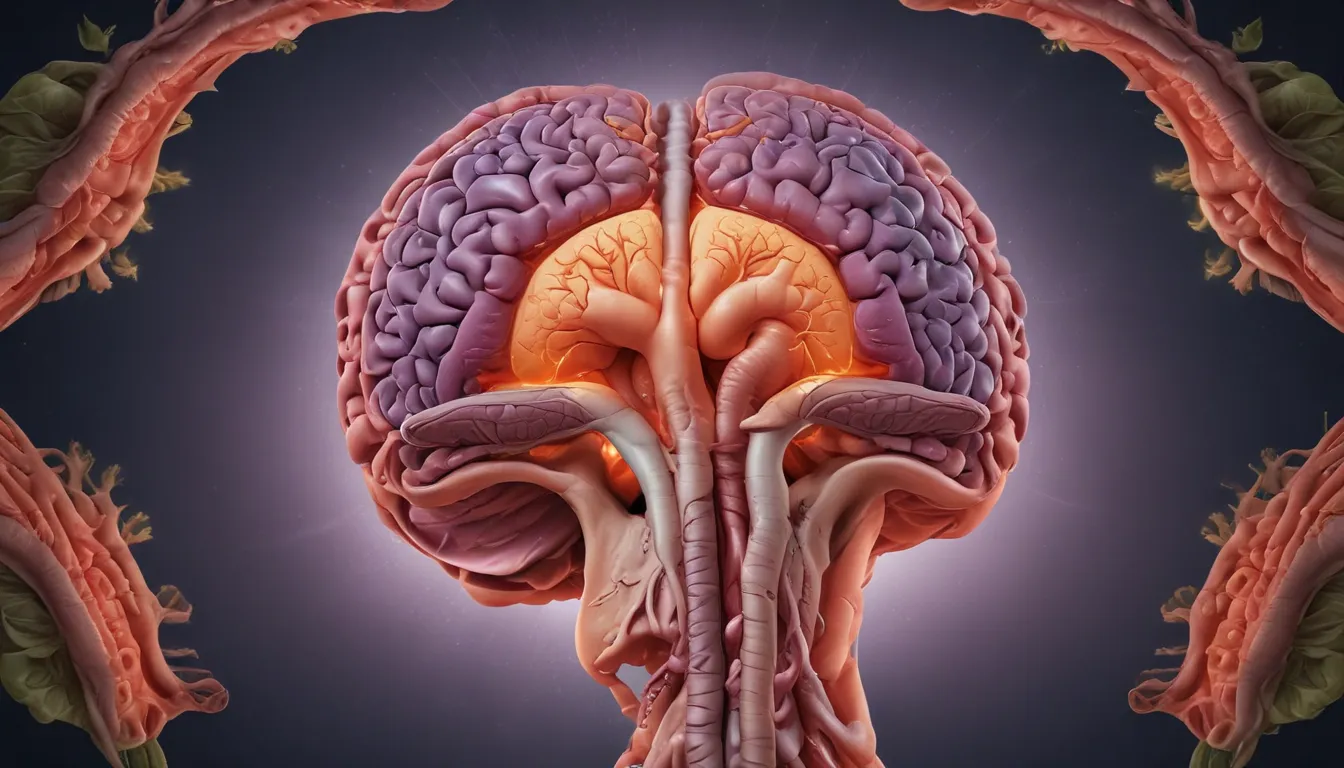A Note About Images: The images used in our articles are for illustration purposes only and may not exactly match the content. They are meant to engage readers, but the text should be relied upon for accurate information.
In the intricate web of the human body’s delicate balance lies a small yet mighty organ known as the pituitary gland. Often hailed as the “master gland,” this pea-sized powerhouse nestled at the base of the brain orchestrates a symphony of functions that are essential for our overall well-being. From controlling growth and reproduction to influencing our emotional state, the pituitary gland is a fascinating entity that warrants our attention and appreciation.
The Marvel of the Pituitary Gland
Amidst the complexity of human biology, the pituitary gland stands out as a vital component of the endocrine system, commanding the stage with its pivotal role in regulating various bodily functions. Let’s embark on a journey to uncover 13 captivating facts about this enigmatic gland that will deepen your understanding of its significance and intricacies.
The Size and Location
Despite its diminutive size, the pituitary gland wields immense power from its perch within the sella turcica, a bony structure at the base of the skull. This small yet mighty organ serves as the command center of the endocrine system, orchestrating a harmonious interplay of hormones to ensure the body functions optimally.
The Two Distinct Parts
Comprising the anterior pituitary and the posterior pituitary, this gland boasts a dual nature, with each part playing a unique role in hormone production and regulation. From growth hormone to prolactin, the pituitary gland secretes a diverse array of hormones that govern crucial bodily functions.
The Symphony of Hormones
Nine different hormones, including growth hormone, follicle-stimulating hormone, and thyrotropin, flow from the pituitary gland, exerting a profound influence on growth, metabolism, and reproductive health. This symphony of hormones orchestrates a delicate balance within the body, ensuring optimal functioning.
The Role in Growth
Central to the pituitary gland’s repertoire is its role in growth and development. Through the release of growth hormone, this gland stimulates growth in children and maintains bone and muscle mass in adults, underscoring its significance in ensuring proper maturation and well-being.
The Intertwined Connection with the Hypothalamus
Operating in tandem with the hypothalamus, the pituitary gland receives signals that regulate hormone secretion, enabling a seamless communication network that governs bodily functions. This intricate connection underscores the interdependence of brain regions in maintaining hormonal balance.
The Production of Oxytocin and Vasopressin
The posterior pituitary gland plays a pivotal role in releasing oxytocin and vasopressin, hormones renowned for their roles in childbirth, bonding, and water balance regulation. These hormones not only facilitate physiological processes but also nurture emotional bonds and maintain fluid balance.
The Link to Emotional Well-being
Beyond its physiological functions, the pituitary gland has been implicated in emotional well-being and mental health. Imbalances in hormone secretion can influence mood disorders and contribute to conditions such as depression, highlighting the gland’s multifaceted role in maintaining overall well-being.
The Intrigue of Tumors
Within the confines of the pituitary gland lurk the specters of tumors, both benign and malignant, that can disrupt hormone production and trigger a cascade of health issues. These insidious growths underscore the fragility of hormonal balance and the importance of vigilant monitoring.
The Vital Role in Reproduction
Fulfilling a crucial role in reproduction, the pituitary gland regulates the release of hormones essential for the menstrual cycle, ovulation, and sperm production. This intricate dance of hormones ensures the perpetuation of life and underscores the gland’s indispensable contribution to the continuity of the species.
The Collaborative Dance with Other Glands
In a symphony of hormonal interplay, the pituitary gland collaborates with other glands such as the thyroid, adrenal glands, and gonads to maintain homeostasis within the body. This seamless coordination ensures the proper functioning of various organs and systems, emphasizing the gland’s central role in overall health.
The Vulnerability to Dysfunction
Despite its resilience, the pituitary gland is not immune to dysfunction, with disorders such as hypopituitarism and hyperpituitarism arising from tumors, genetic factors, or radiation therapy. These conditions underscore the fragility of hormonal balance and the need for regular monitoring and intervention.
The Lifelong Impact
As a stalwart guardian of health and well-being, the pituitary gland exerts a lifelong impact on our physiological harmony. From infancy to old age, its influence on growth, metabolism, and hormonal balance remains a steadfast companion, underscoring its significance in the tapestry of human biology.
In Conclusion
The pituitary gland, a beacon of biological marvel, stands as a testament to the intricacies of human physiology. Through its orchestration of hormones and collaborative efforts with other glands, this diminutive organ holds sway over crucial bodily functions, leaving an indelible mark on our health and well-being. By delving into its captivating facts, we gain a deeper appreciation for the pituitary gland’s profound influence and the interconnectedness of our bodily systems.
FAQs
- What is the pituitary gland?
-
The pituitary gland is a small, pea-sized organ located at the base of the brain, known for its role in regulating hormone secretion and coordinating various bodily functions.
-
What are the main functions of the pituitary gland?
-
The pituitary gland controls growth, metabolism, reproduction, and emotional well-being through the secretion of hormones that influence other endocrine glands.
-
How does the pituitary gland impact growth?
-
By releasing growth hormone, the pituitary gland stimulates growth in children and helps maintain bone and muscle mass in adults, playing a pivotal role in overall development.
-
What disorders are associated with the pituitary gland?
-
Pituitary tumors, hypopituitarism, hyperpituitarism, and pituitary apoplexy are among the disorders that can affect the pituitary gland, leading to hormonal imbalances and various health issues.
-
Can stress affect the pituitary gland?
-
Chronic stress can disrupt the normal functioning of the pituitary gland, leading to hormone imbalances and impacting overall well-being, highlighting the gland’s susceptibility to external factors.
-
How do lifestyle choices impact the pituitary gland?
-
Factors such as diet, exercise, and sleep patterns can influence the pituitary gland’s functioning, emphasizing the importance of a healthy lifestyle in maintaining hormonal balance and overall well-being.
-
Can the pituitary gland be treated if it malfunctions?
- Depending on the specific condition, treatments such as medication, hormonal replacement therapy, surgery, or radiation therapy may be utilized to manage pituitary gland disorders, underscoring the importance of seeking medical intervention for optimal outcomes.
In our quest for understanding the intricate workings of the human body, the pituitary gland emerges as a beacon of biological complexity and significance. By unraveling its mysteries and appreciating its role in maintaining hormonal balance, we take a step closer to comprehending the marvels of our own physiology. Let the wonders of the pituitary gland inspire a newfound appreciation for the delicate dance of hormones that sustains our health and well-being.






